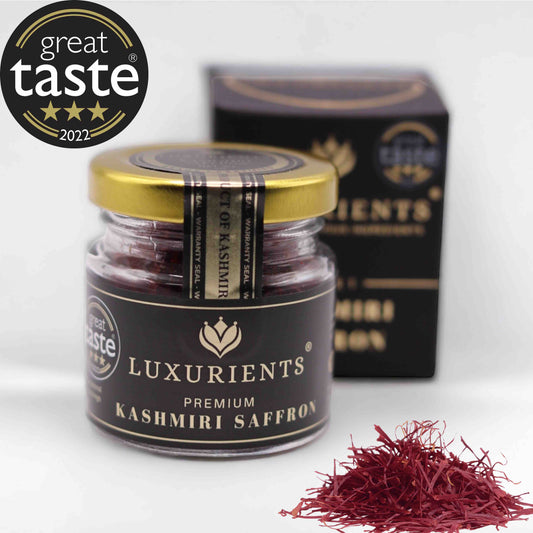Introduction
Pregnancy is a beautiful and transformative journey for a woman, filled with anticipation and careful considerations. One of the aspects that often arises during this time is the question of diet and nutrition. Many expectant mothers are keen on making the right food choices to ensure the health and well-being of both themselves and their developing baby. One such food item that has garnered attention in recent years is saffron. Known as the "golden spice," saffron is renowned for its unique flavour, vibrant colour, and potential health benefits. In this blog post, we will explore saffron during pregnancy, its benefits, precautions, and how to incorporate it into your diet safely.
Understanding Saffron
Saffron, scientifically known as Crocus sativus, is a spice derived from the flower of the crocus plant. It is one of the most expensive spices in the world, primarily due to the labour-intensive process of harvesting and obtaining the delicate stigmas or threads from the flower. Saffron has a rich history dating back to ancient civilisations, where it was not only used as a culinary ingredient but also valued for its medicinal properties.
Benefits of Saffron During Pregnancy
1. Rich in Nutrients: Saffron is a source of various essential nutrients, including vitamins, minerals, and antioxidants. It contains vitamin A, vitamin C, and several B vitamins, which are crucial for a healthy pregnancy and fetal development.
2. Mood and Stress Management: Pregnancy can bring about mood swings and stress. Saffron has been studied for its potential to alleviate these symptoms. Some research suggests that saffron may have a mild antidepressant effect and could help improve mood.
3. Digestive Aid: Many expectant mothers experience digestive discomfort during pregnancy. Saffron may help alleviate gastrointestinal issues, such as bloating and indigestion.
4. Blood Pressure Regulation: Saffron has been linked to the regulation of blood pressure, which is important during pregnancy. It may help maintain healthy blood pressure levels, reducing the risk of complications.
5. Antioxidant Properties: Saffron is rich in antioxidants like crocin and crocetin, which can help protect cells from oxidative stress and damage.
6. Potential Reduction in Preeclampsia Risk: Some studies suggest that saffron may have a protective effect against preeclampsia, a potentially dangerous condition that can occur during pregnancy.
Precautions and Moderation
While saffron has potential benefits during pregnancy, it's essential to exercise caution and consume it in moderation:
1. Quality Matters: Ensure you purchase high-quality saffron from a reputable source to guarantee purity and avoid contaminants.
2. Quantity: Pregnant women should consume saffron in moderation, typically no more than a few strands (approximately 1-2 mg) per day. Excessive saffron consumption can lead to adverse effects.
3. Allergies: Some individuals may be allergic to saffron, so it's important to monitor for any adverse reactions when introducing it into your diet.
4. Consult Your Healthcare Provider: Before adding saffron to your pregnancy diet, consult with your healthcare provider or a registered dietitian. They can provide personalised advice based on your health and pregnancy status.
Incorporating Saffron into Your Diet
1. Saffron Tea: You can make saffron tea by steeping a few saffron strands in hot water. This soothing and aromatic tea can be a delightful addition to your pregnancy routine.
2. Culinary Uses: Saffron is widely used in various cuisines to add flavour and color to dishes. It pairs well with rice, soups, stews, and even desserts. Be creative and experiment with saffron in your favourite recipes.
3. Supplements: Some women prefer saffron supplements, but it's crucial to consult your healthcare provider before taking any dietary supplements during pregnancy.
Conclusion
Saffron is indeed a golden spice that can be a valuable addition to your pregnancy diet when consumed in moderation and with proper care. Its potential benefits in terms of mood improvement, antioxidant properties, and blood pressure regulation make it an intriguing option for expectant mothers. However, always prioritise safety and consult your healthcare provider for personalised guidance on incorporating saffron into your diet during pregnancy. As with any dietary change, it's crucial to strike a balance that promotes your health and the well-being of your growing baby.


